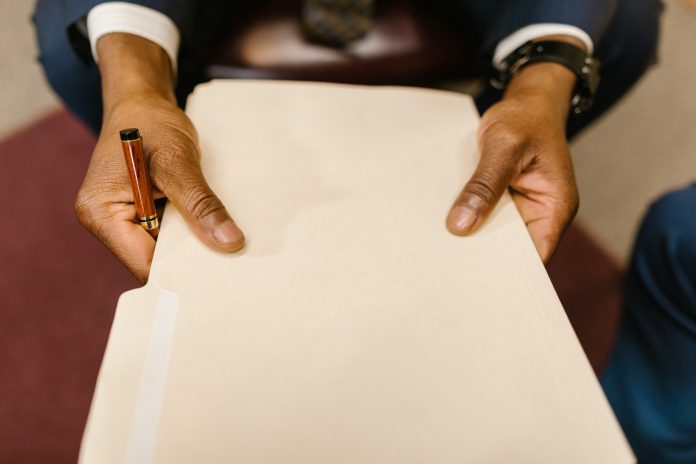Image Source
So, do you think that writing a will is difficult? This process may seem complicated to some, and they can assume that legal whizkids are capable of penning down a decent testament. However, writing your will isn’t as difficult as people imagine it. Instead, it’s a pretty straightforward process.
Table of Contents
Will-creation made easy
Unfortunately, Americans mostly neglect the importance of writing a will. Surveys have shown that 60% of Americans don’t have any estate planning documents. However, creating your will allows you to control the distribution of your assets. Dying without a will means you’ve died intestate. In other words, a court will determine who gets what from your estate.
However, a will allows you to divide your stuff as per your wishes. You can include and exclude anyone from your legacy and give your assets to people you trust. Also, the presence of a will accelerates the legal process called probate. You can specify your final wishes about your funeral as well. So, here’s how you can easily produce a will in ten simple steps now:
-
Make an inventory
Your will constitutes the most important part of your estate planning documents. But the process of making a will doesn’t begin with writing down your thoughts on paper. Instead, you should determine which assets you own and who will receive them after you pass over.
What exactly are you leaving behind for your inheritors? Create an inventory of your assets to assess how much wealth you’ll distribute among your successors. Your property can include stocks, artwork, vehicles, jewelry, houses, bank accounts, etc. Don’t forget to inform everyone of your unpaid debts because your heirs shall receive their share of the property only after all debts have been paid. So, practice transparency while creating an inventory of the assets you own today.
-
Choose executors carefully
Who shall implement the content of your will after your passing? We call this person the executor of your will. People can always nominate more than one executor because there’s no compulsion to have just one. Justbe sure these executors are reliable people who will make your will a reality after your demise. Remember that your heirs may become executors in the absence of one. If you don’t trust them to get the job done, nominate an executor to avoid problems.
-
Determine your beneficiaries
Who is going to get what from your assets? Writing a will allows you to specify who will become the beneficiary after your death and receive what from your property. Interestingly, you can leave every piece of property you own to a certain someone, i.e.,a universal legacy. Estate planning enables you to remove someone from the list of your beneficiaries or replace them with someone. Moreover, you must keep updating your wills to ensure no undesirable people are listed as your beneficiaries.
-
Pick one guardian
Who will look after your minors after your passing? You should nominate a person as your children’s legal guardian. Your dependent children need an adult to serve as their supervisor, and you can nominate several guardians. They shall look after your kids until they grow up and become legally fit to look after themselves. Ensure you appoint a responsible individual to take care of your beloved children. Naming many guardians is helpful when one refuses to assume this role.
-
Draft the document
Now, it’s time to write down your will to preserve your wishes about your legacy. Remember that drafting a will isn’t expensive; you can create one online. Otherwise, an attorney may charge you less than $1,000 if you think this process isn’t easy. Many people recruit lawyers for this service or obtain a statutory form they have to fill. However, an individual with simple wishes can just go online and type a modest estate planning document.
-
Bring some witnesses
Creating a will alone isn’t recommended. Instead, we suggest you sign this document right before some witnesses. The validity of this signature requires the presence of these witnesses so they can testify to the legality of this document. Moreover, using a self-proving affidavit is accepted when your signature is notarized too. That’s why you should discuss these intricacies today with a lawyer. Remember that you’re trying to make this will go through probate without trouble.
-
Store your will safely
Don’t forget to store your estate planning documents somewhere safe and make copies as well. Your will needs to be accessible to your immediate successors in case you die unexpectedly or even become incapacitated since the will won’t benefit them if they fail to find it and present it before a judge.
-
Attach a letter
A survey claims that around a quarter of Americans younger than 45 have never written a personal letter or mailed it. However, you should pen down a letter to your family and friends as the message they shall receive from you after your demise. Now, it’s not mandatory to write a goodbye message. But you can explain why you divided your assets among your inheritors in a certain way. Also, you can type this letter and give it to your executor to read before everyone after your death.
-
Review the will
Don’t forget to review and update the will occasionally, especially after something important has occurred in your life. For instance, you should review your will after a relative’s death or a marriage/breakup. Experts suggest you review the Will after three or five years to keep its content fresh, updated, and relevant. Remember that your wishes may change as per circumstances, so update estate planning documents whenever a significant life event happens and alters things.
-
Write other documents
Your will is the most important estate planning document, but it isn’t the only document. You must create other estate planning documents, such as a living trust. Creating a living trust allows your heirs to swiftly avoid going through the probate process and receive their legacy. Moreover, a person should give e medical/financial power of attorney to some reliable people. These additional documents collectively become an important portion of your estate planning efforts for the future.
Conclusion
Creating a Will helps you avoid intestacy and gives you control over what happens to your assets after your passing. The steps involved in creating a will are straightforward. Create an inventory of your possessions and choose your beneficiaries. Make a reliable person your executor and appoint someone as your kids’ guardian. You must sign the will in the presence of two witnesses. Ensure you have stored the will somewhere safe. That’s how you can write a will in ten simple steps to secure your heirs’ future.








